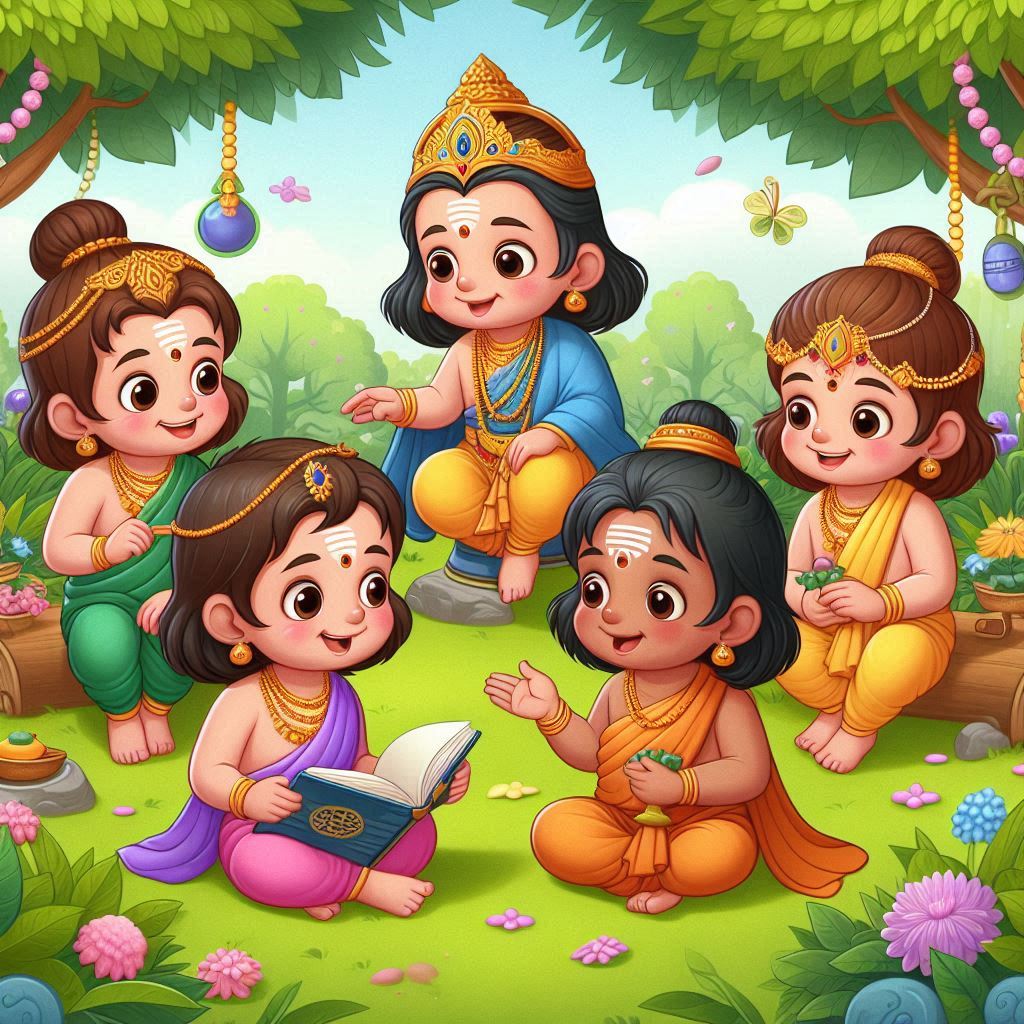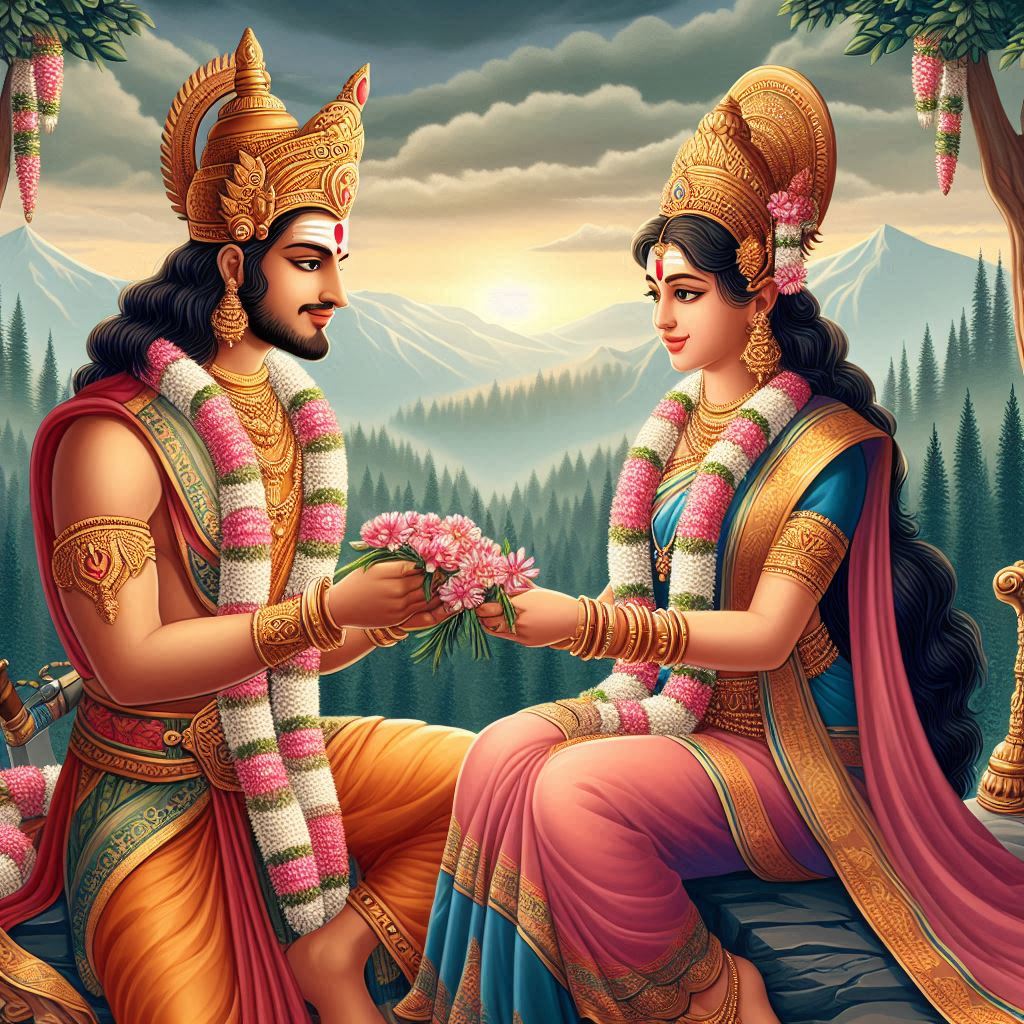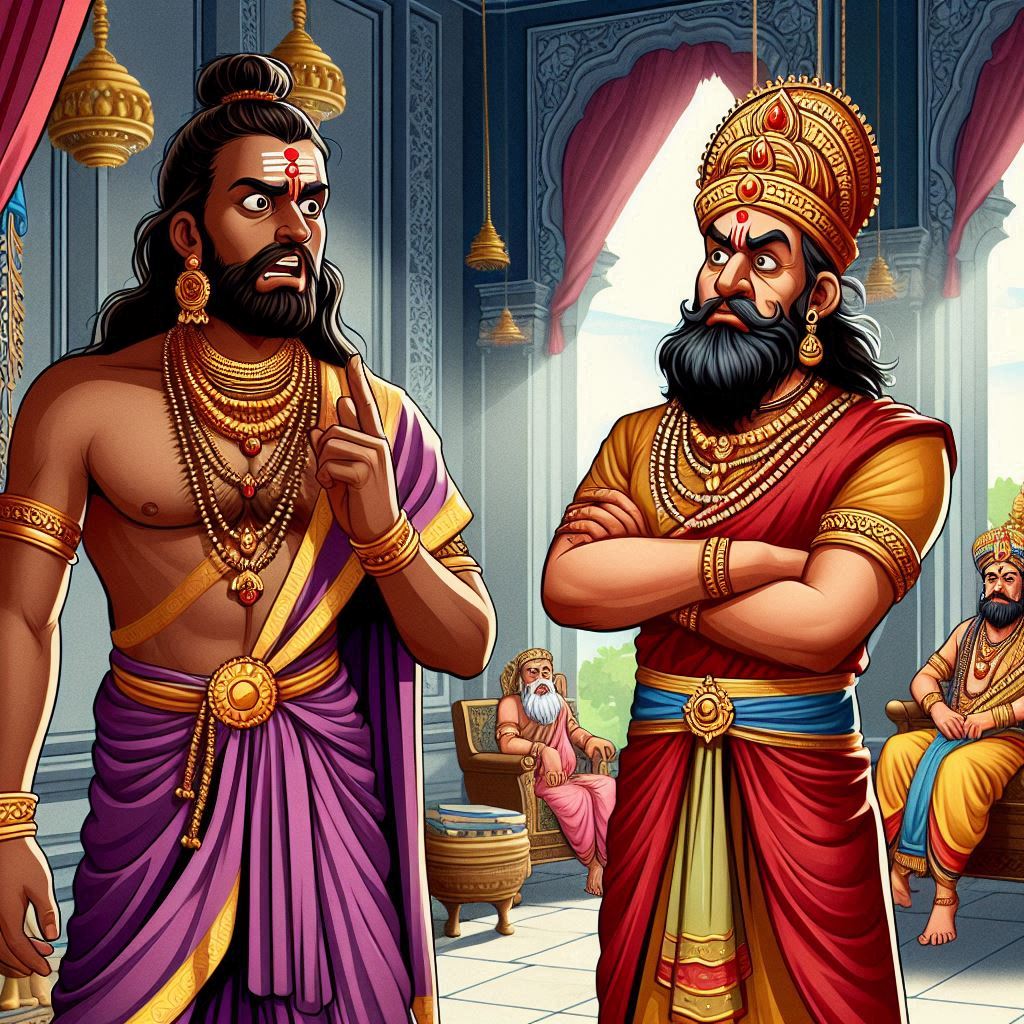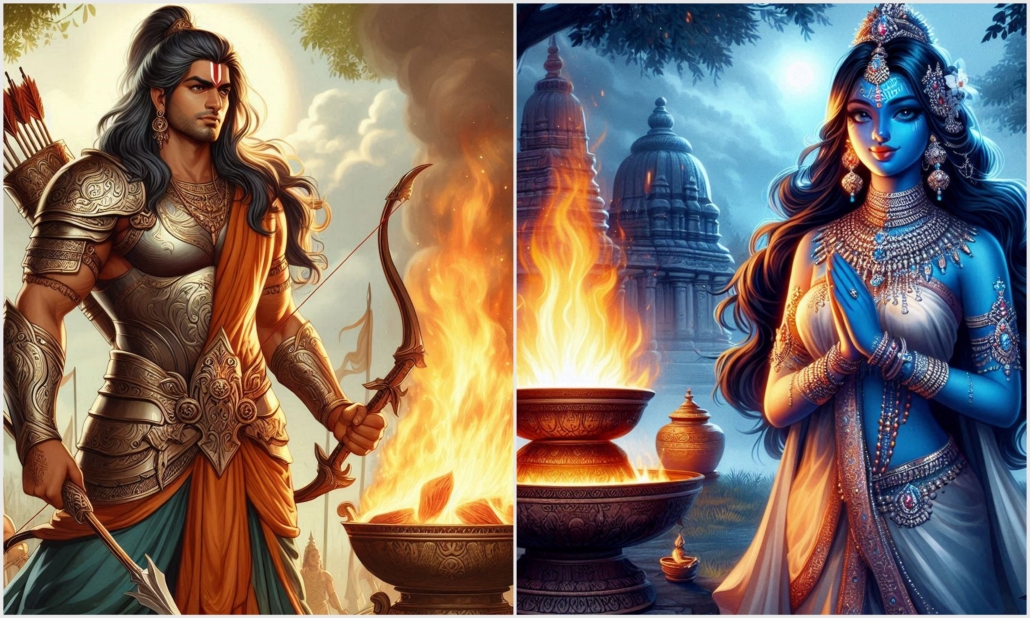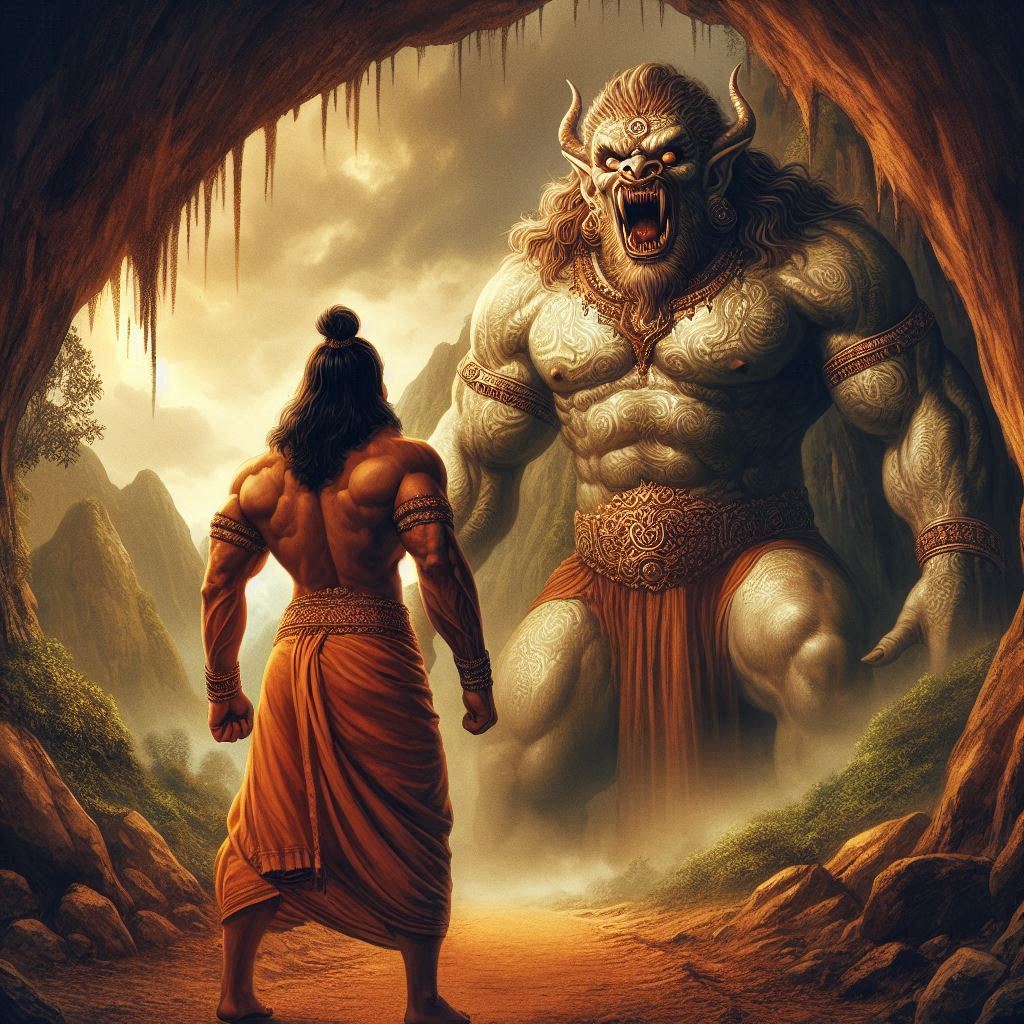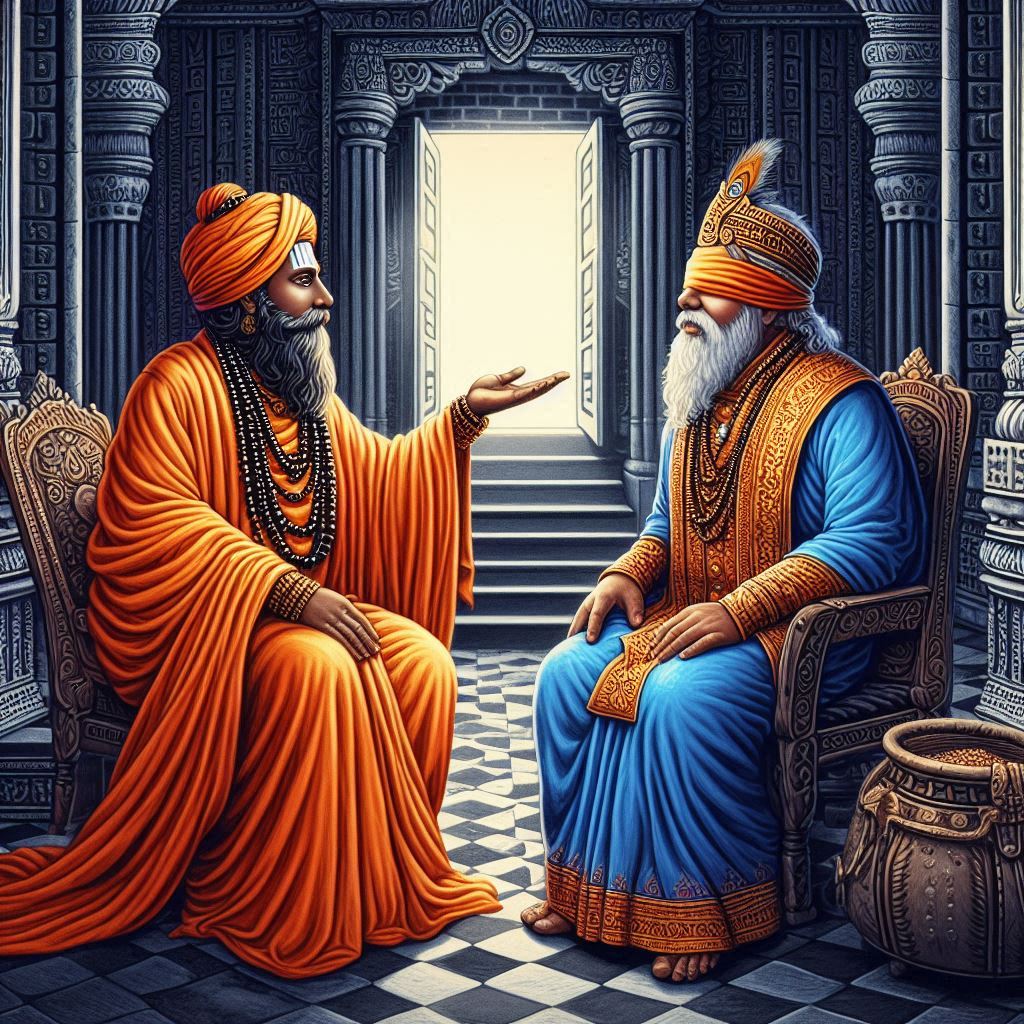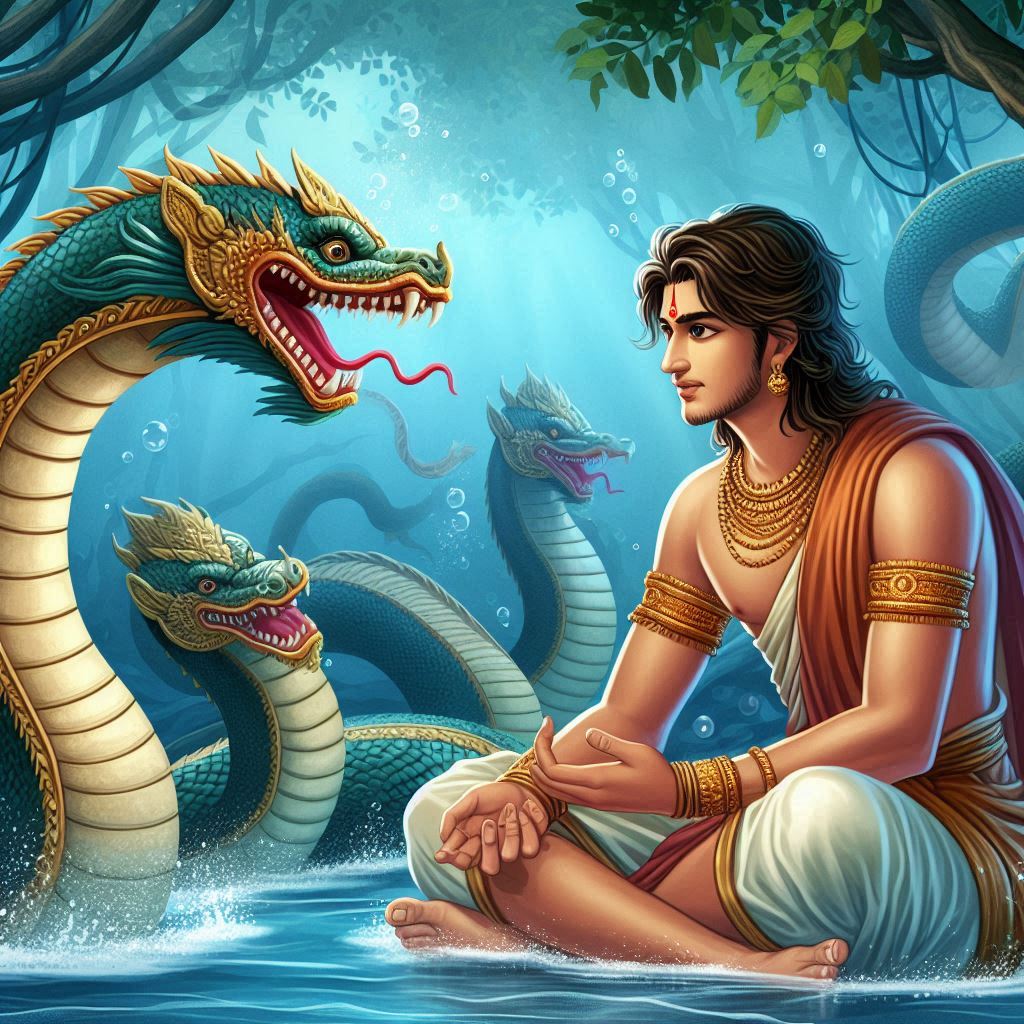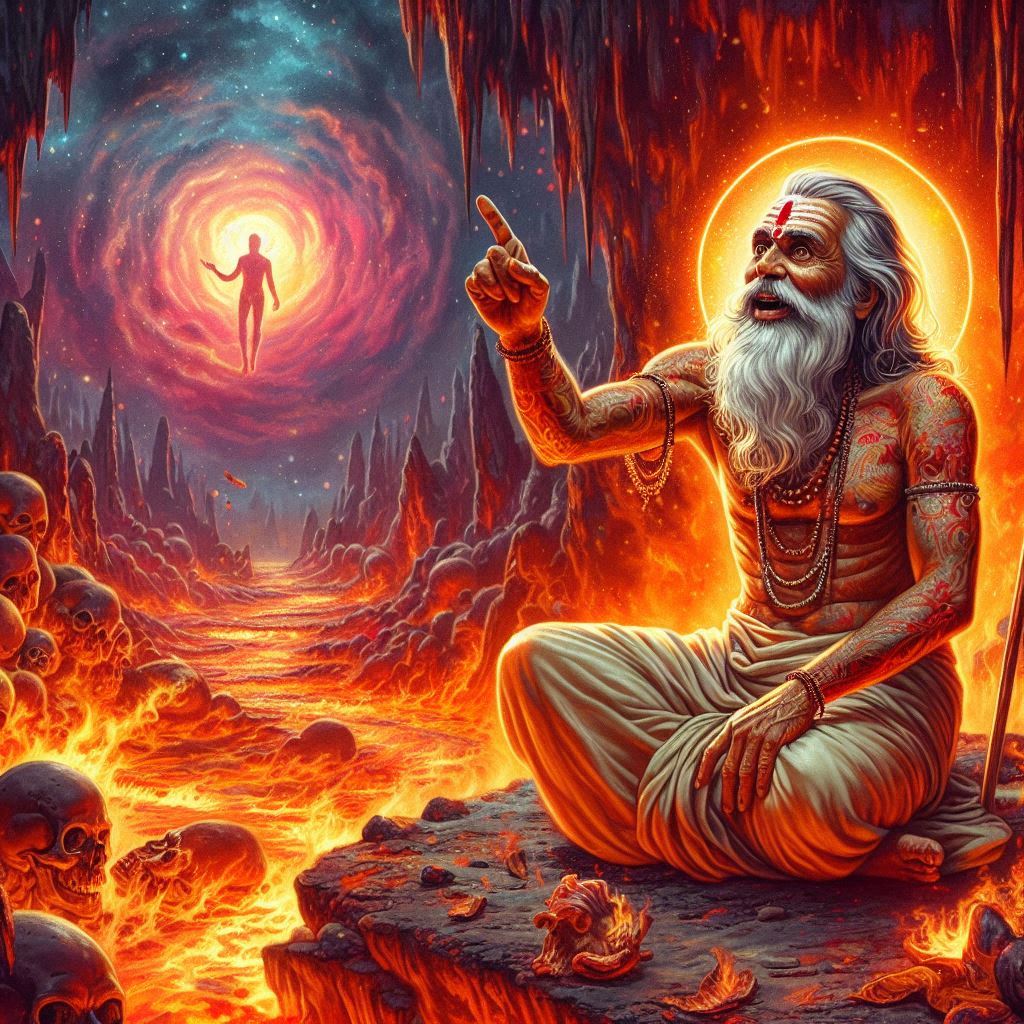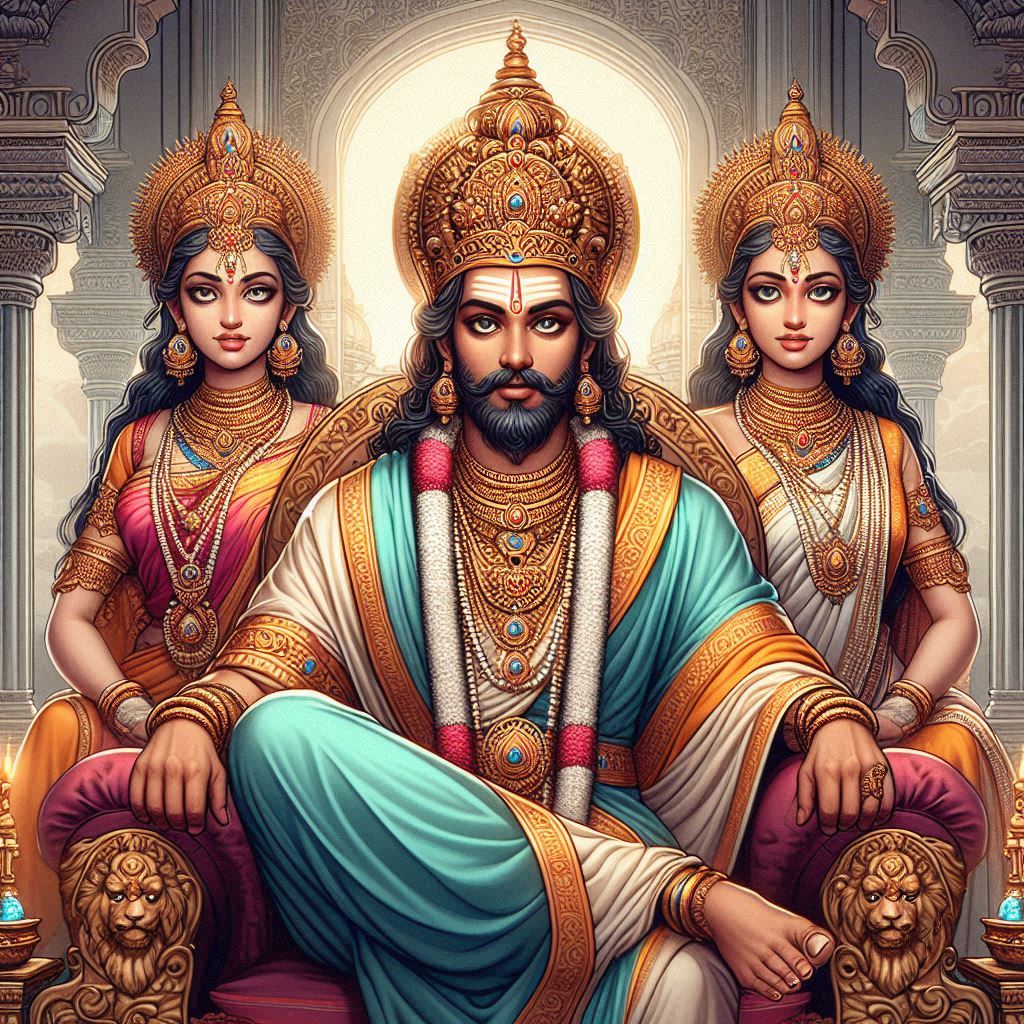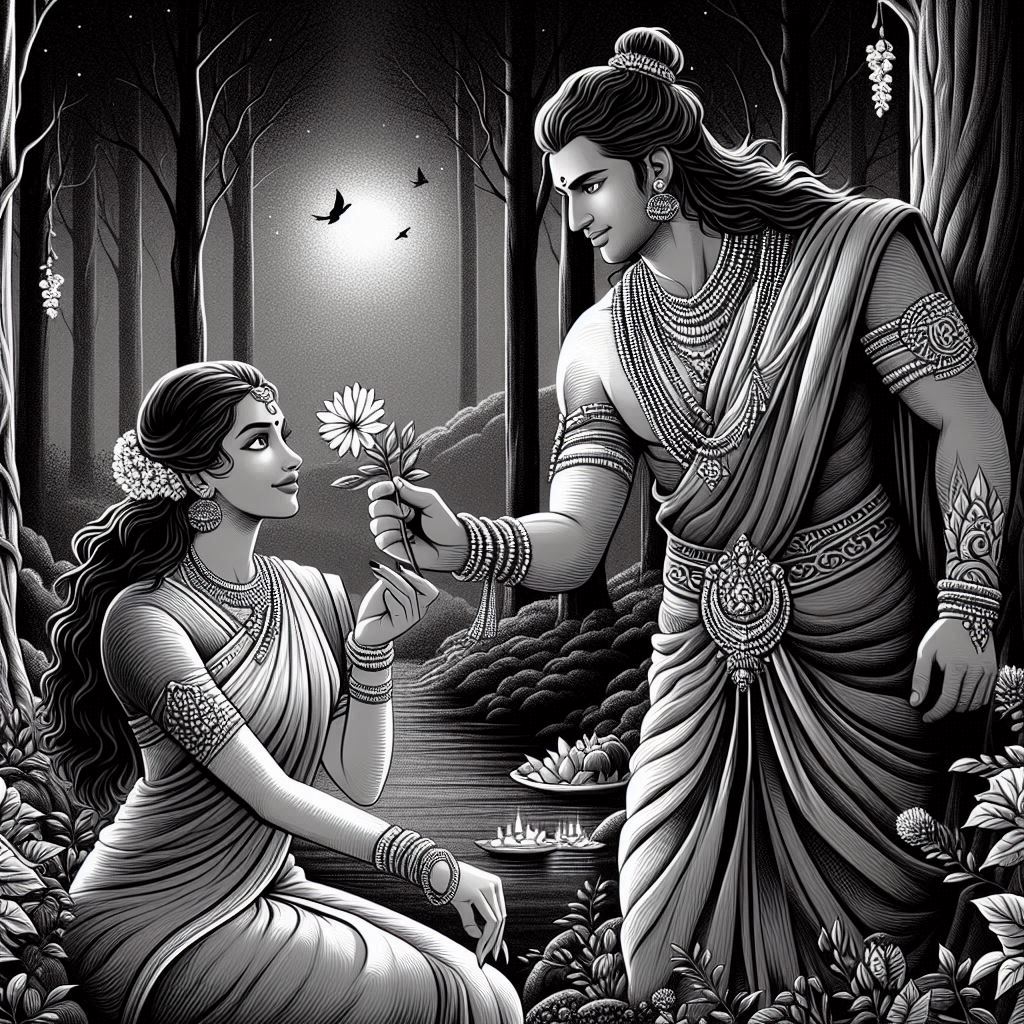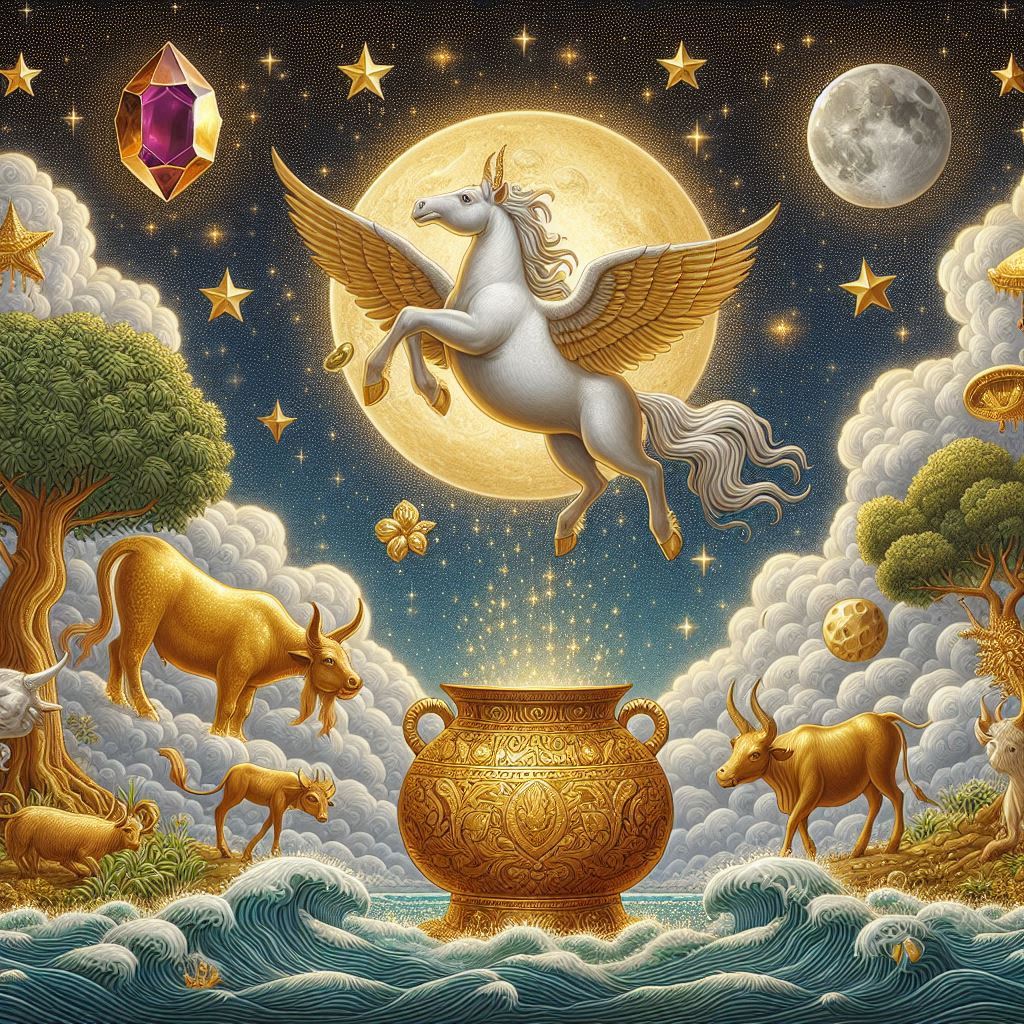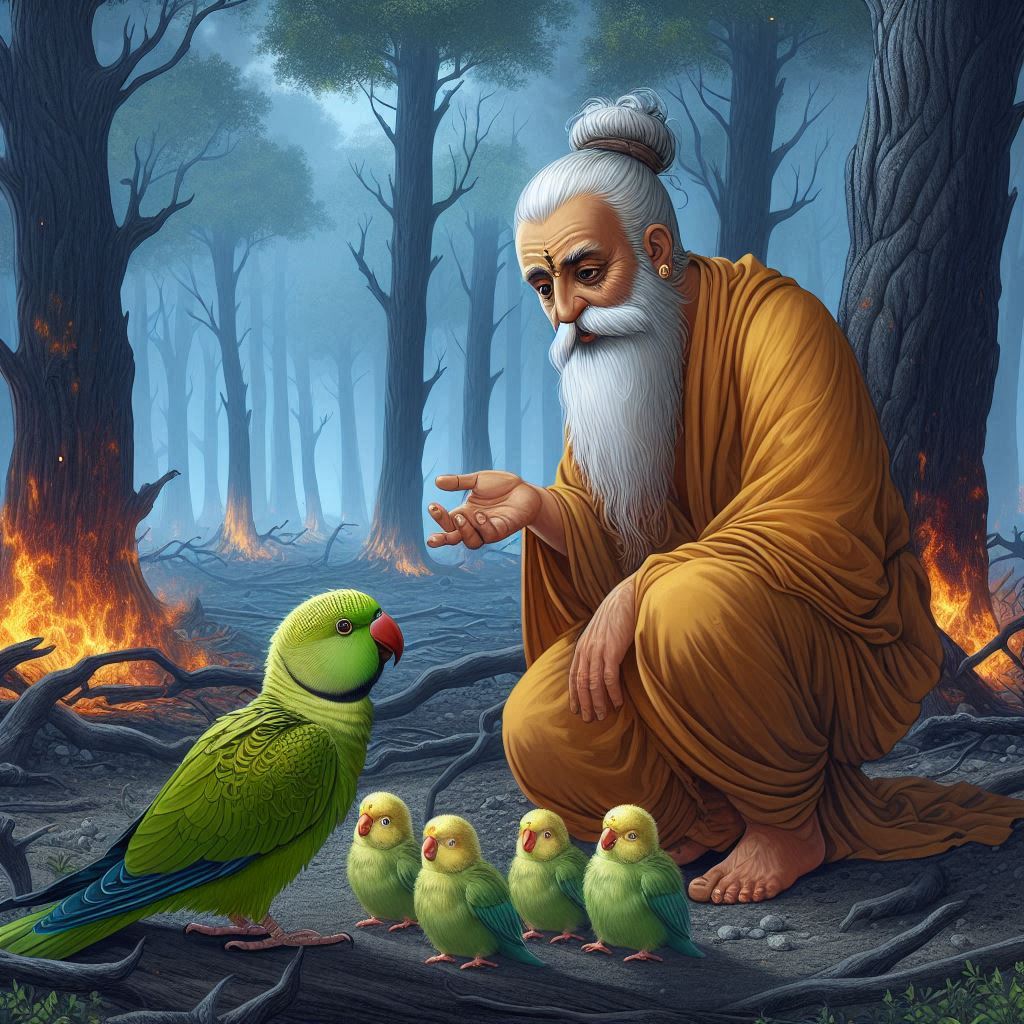
When Agni burned the Kandava forest, only six beings came out alive. One was Maya (the asura architect), and the other was Ashvasena, the son of Takshaka. The other four were the Sharngaka birds. These birds were the children of Rishi Mandapala and a female Sharngaka bird.
Once upon a time, there lived a rishi named Mandapala. He loved to travel across the world and explore new regions in the universe. He had completed all the austerities and given up his body to freely travel across the spaces. However, he wasn’t permitted entry into the world of ancestors (pitrs). When he asked for the reason, he was told by the other dwellers of heaven that he could gain entry to that world only if he had an offspring. His children or grandchildren would perform the necessary rituals to make it possible. Since he didn’t have any kids, he couldn’t enter the pitr world.
Mandapala decided he needed some children quickly. After some thinking, he decided to transform into a bird and find a partner from the same species. He chose Jarita, a female Sharngaka bird as his wife. Jarita laid four eggs and the rishi left them and went back to his previous wife, Lapita. They resumed their travel across the three worlds.
Jarita took care of her eggs and brought up the four chicks with love and affection. Being the sons of a rishi, the little ones were born with immense knowledge. Their mother further taught them about Vedas, Shastras, etc.
One day, Mandapala was roaming with Lapita when he saw Agni Deva move towards the Kandava forest. He was worried about the family he abandoned and requested Agni Deva to not kill his children in the forest fire. Agni Deva agreed.
Meanwhile, Jarita and her sons got a whiff of the forest fire. She was terrified for her children as they were too young to fly. She couldn’t abandon them, nor could she take them with her and escape. The children (Jaritari, Sarisrikva, Stambamitra, and Drona) asked her to leave before the fire caught up. They reasoned that if she was alive, she could have more children. However, if she died, they wouldn’t know how to survive in the big bad world.
Jarita offered many options to hide the chicks (like the mouse’s hole on the ground, hollowed tree trunk, etc.). However, the babies said it was too risky and their nest was the safest place. Jarita wasn’t sure but they convinced her to leave and promised to do their best to stay alive. As the flames came closer, Jarita flew high and left the forest. The four chicks prayed to Agni Deva. He appeared and asked them what they wanted. They requested him to save their little lives.
Agni Deva said that the little Sharngaka birds were also rishis and he would listen to their words. He added that their father, Mandapala, already sought their protection, so their lives would be safe. The youngest chick, Drona, requested Agni Deva to consume the cats which often eyed them as its meal. He assured them that all their enemies would be consumed. The fire blazed on but the nest was unharmed.
However, Mandapala saw the raging flames and was restless. He felt guilty for being selfish and abandoning his family. Lapita was annoyed and told him to go to his new family. She left him and stalked off. Unable to stop worrying, Mandapala walked through the forest and its ruins, searching for his sons.
As the flames settled, Jarita came back and found her sons safe. She let out a delighted cry and hugged her children. Just then, Mandapala also reached the spot and was relieved to find them alive. That said, the four little birds didn’t react or acknowledge his presence. He tried to talk to them and asked for their names.
Jarita asked him to leave since he didn’t care for her or their children and abandoned them. He replied that he had asked Agni Deva to protect his children and assured them that he indeed cared for their safety. Convincing his wife and sons, he left the region. They travelled to another land to live peacefully.

